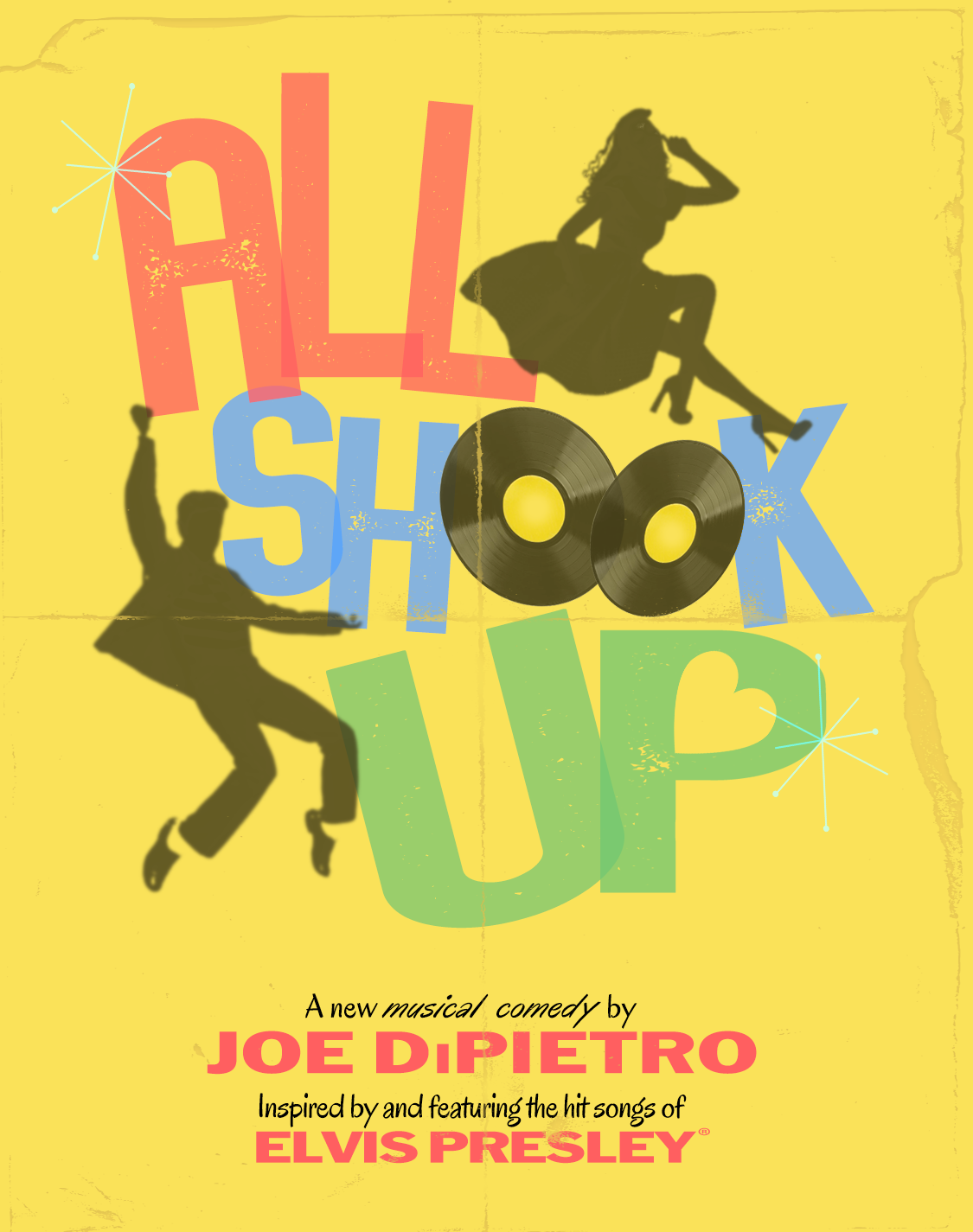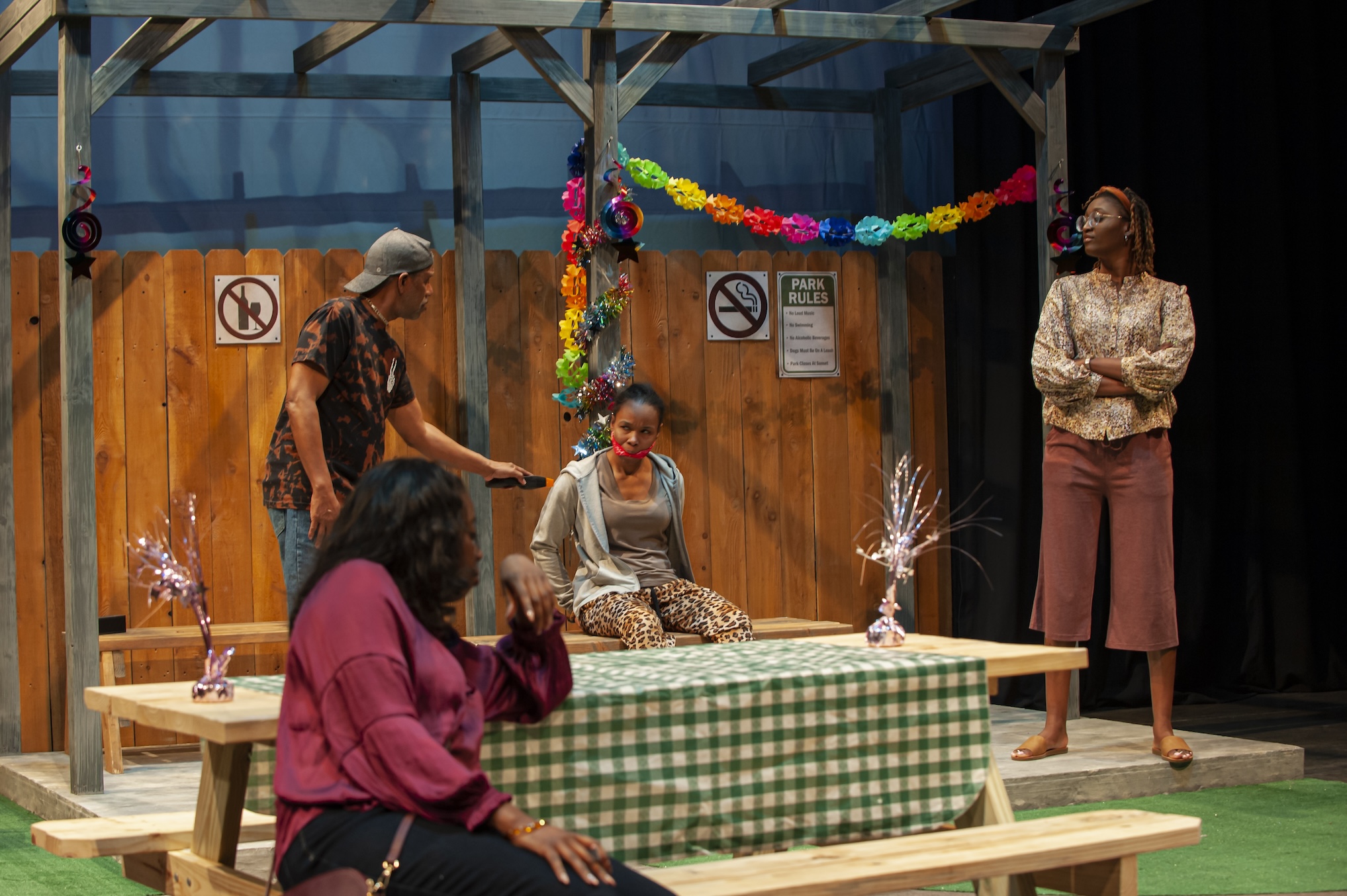Theatrical Rights - A Closer Look At Permissions
When we talk about putting on a show, or maybe even showing a film in a specific kind of venue, there is this whole idea of getting the proper permission. It is a big part of making sure everything runs smoothly and that the people who created the work get what they deserve. This concept of permission, particularly when it comes to presenting something on a stage or screen for an audience, is often called "theatrical rights." It’s about having the proper allowance to bring a story to life in front of others, which, you know, is pretty important for anyone involved in creating or showing art.
You see, the word "theatrical" itself points to things that have to do with the stage, or putting on plays, or perhaps even operas. It suggests a connection to the very act of performing for a live audience, or sometimes even showing a film in a cinema. It covers a wide range of activities, from a small group of people putting on a play in a community hall to a big production happening in a well-known playhouse. Basically, if it is something that is meant to be seen by people gathered together, in a place designed for watching, it falls under this broad idea of "theatrical."
So, when we add "rights" to that, we are really talking about the legal allowances that let someone do these things. It is about who owns the permission to perform a certain play, or to show a particular film, or even to use a piece of music in a stage production. These permissions make sure that the original creators, like the writer of a play or the composer of a song, get recognized and compensated for their work. It is, in a way, about respecting the creative effort that goes into making something for others to experience, which is, you know, something we should all really care about.
- Shemane Deziel A Comprehensive Look Into Her Life And Career
- Cleonice Rossi Martinelli A Comprehensive Exploration Of Her Life And Achievements
- Hannahowo Video The Rising Star Of Online Content Creation
- Marnie Stevens The Rising Star In The World Of Entertainment
- Ewa Klobukowska The Legacy Of A Polish Sports Icon
Table of Contents
- What Do We Mean by "Theatrical," Anyway?
- Why Do Theatrical Rights Matter So Much?
- Who Typically Holds Theatrical Rights?
- Getting the Go-Ahead- How Do You Get Theatrical Rights?
- Different Kinds of Theatrical Rights to Consider
- What Happens Without Proper Theatrical Rights?
- Ensuring Proper Theatrical Rights for Your Project
- The Larger Picture of Theatrical Rights
What Do We Mean by "Theatrical," Anyway?
When someone mentions something is "theatrical," they are, more often than not, talking about something connected to the stage or the showing of plays. It is a word that describes things that belong to the world of live performance, like a play or an opera, or perhaps even the way a performer acts. Think about a person who works on Broadway; that person is certainly involved in something quite theatrical. A play itself, too, is a theatrical creation, meant for people to watch live. It is all about the presentation of stories or performances in a setting where people gather to experience them together.
The term can also describe something that reminds you of acting, or a style that is perhaps a bit over-the-top, like a really dramatic show of sadness. It is about presenting something in a way that is designed to capture attention, sometimes in a rather obvious fashion. But when we are talking about the permissions needed for performances, the main idea behind "theatrical" is its link to stages, live performers, and audiences. This includes everything from a local group putting on a small play to a large-scale stage production that people travel far to see. It is, you know, the very essence of what happens when a story comes to life in front of people.
Moreover, the meaning of "theatrical" can extend to films that are being shown in movie houses. A commercially made film that is presented in a cinema is, in a way, also part of this theatrical space. It is about a collective experience of watching a story unfold, whether it is live on a stage or on a big screen. So, in essence, if something is suitable for a dramatic show, or if it is related to a place where people go to watch performances, it has a theatrical quality. This broad definition helps us understand what sorts of creative works need specific permissions, or theatrical rights, before they can be shown to the public.
- Kim Soo Hyun Heart Surgery An Indepth Look At The Journey Of The Star
- Antonio Cupo Married Dorothy Wang A Journey Of Love And Partnership
- Aleia Hobbs Wife An Insight Into Their Relationship And Personal Life
- Jellybean Brains Of Leak Understanding The Phenomenon And Its Implications
- Katharine Wilder The Life And Legacy Of A Remarkable Talent
Why Do Theatrical Rights Matter So Much?
You might wonder why these specific permissions, or theatrical rights, are such a big deal. Well, honestly, they are absolutely key for a few important reasons. For one thing, they protect the people who create the plays, the music, or the stories. Imagine spending years writing a compelling play, putting all your thoughts and feelings into it. You would want to make sure that if someone performs it, they do so with your blessing and that you get some recognition, perhaps even some money, for your hard work. These rights make sure that happens, you know, so creators can keep creating.
Then there is the matter of quality and control. When a writer grants theatrical rights, they often have some say in how their work is presented. This can mean ensuring that the play is performed in a way that respects the original vision, or that certain elements are kept as intended. It helps maintain the artistic integrity of the piece. Without these permissions, anyone could put on any play, in any way, without a thought for the original creator's wishes, which, frankly, could lead to some rather messy situations.
Furthermore, these rights help keep the whole system of creative work going. When creators are compensated for their work, it encourages them to produce more. It is a way of supporting the arts and making sure that new plays, new music, and new films keep coming into being. If there were no way for creators to earn from their efforts, the incentive to produce new and interesting works would lessen quite a bit. So, in a way, respecting theatrical rights is about keeping the creative engine running for everyone to enjoy.
Who Typically Holds Theatrical Rights?
So, who actually has these important theatrical rights? Generally speaking, the person or people who created the original work are the ones who hold these permissions first. This would be the playwright for a play, the composer and lyricist for a musical, or the screenwriters and directors for a film. They are the initial owners of the creative output, and so they have the say over how it is used in a performance setting. This is, you know, just a basic idea of ownership in the creative world.
However, it is not always that simple. Often, creators will work with publishers, agents, or licensing companies. These organizations act as representatives, managing the theatrical rights on behalf of the creators. For instance, a play publisher might handle all the requests from theater groups wanting to perform a certain play. They manage the agreements, collect the fees, and make sure everything is done according to the rules set by the original artist. This makes it much easier for both the creators and those wanting to perform the work, as it centralizes the process quite a bit.
In some cases, especially with older works, the theatrical rights might have passed into the public domain. This means that the original creator's period of ownership has expired, and the work can now be performed by anyone without needing special permission or paying fees. But for anything that is still under copyright, which is most contemporary works, these rights are held by the creators or their chosen representatives. It is, basically, about knowing who has the authority to say "yes, you can perform this" when it comes to a specific piece of art.
Getting the Go-Ahead- How Do You Get Theatrical Rights?
If you are planning to put on a play, an opera, or even show a film in a specific venue, getting the necessary theatrical rights is a key step. You cannot just decide to perform something without getting the proper permission first. The usual way to go about this is to contact the entity that manages the rights for the particular work you are interested in. This could be a play publishing house, a film distribution company, or an agency that looks after the works of a specific writer or composer. They are the ones who can grant you the allowance you need, you know, to move forward.
The process usually involves submitting a request, often through an application form. You will need to provide details about your planned performance, like where it will take place, when, how many shows you plan to do, and the size of your audience. Based on these details, the rights holder will typically give you a quote for the fees you will need to pay. These fees can vary quite a bit depending on the popularity of the work, the type of venue, and how many performances you are planning. It is, in some respects, like renting a piece of property for a specific period.
Once you agree to the terms and pay the fees, you will receive a license agreement. This document is your official permission to perform the work. It will outline all the conditions, such as how long you have the rights, any specific requirements for advertising, and how you must credit the original creators. Reading this agreement carefully is pretty important, as it lays out all the rules you need to follow. Without this formal agreement, you are, in a way, performing without permission, which could lead to some rather difficult situations.
Different Kinds of Theatrical Rights to Consider
It might seem like all theatrical rights are the same, but actually, there are a few different types, each with its own particular focus. For instance, there are "performance rights," which are perhaps the most common. These are the permissions needed to actually stage a play or musical in front of a live audience. They cover the act of acting out the story, singing the songs, and presenting the work as a live show. This is, you know, what most people think of when they consider putting on a play.
Then there are "grand rights," which typically apply to larger musical works like operas, ballets, or musicals where the music and dramatic elements are very closely tied together. These are often more complex and involve specific agreements because the music is such an integral part of the storytelling. The use of music in a theatrical setting, especially when it is meant to tell a story through song and movement, falls under these specific permissions. It is, basically, about the integrated nature of the performance.
For films, we talk about "exhibition rights." These are the permissions needed to show a commercially produced film in a movie theater or another public venue. While not "live" in the same way as a play, showing a film to a gathered audience in a cinema is still considered a theatrical presentation. These rights ensure that the film producers and distributors are compensated for their work and that the film is shown under the proper conditions. So, while the medium is different, the idea of getting permission for a public viewing is quite similar to stage performances.
What Happens Without Proper Theatrical Rights?
Ignoring the need for proper theatrical rights can lead to some rather serious problems. If you put on a performance of a play, musical, or film without getting the necessary permissions, you are, in effect, infringing on the creator's legal ownership. This is often called copyright infringement, and it can have significant consequences. It is, honestly, not something you want to mess around with, as the repercussions can be quite impactful on your project and reputation.
The most immediate result could be that the rights holder finds out about your unauthorized performance and demands that you stop. This means your show could be shut down, perhaps even in the middle of its run, which would be a huge disappointment for everyone involved, from the performers to the audience. Beyond that, you could face legal action. The rights holder could sue you for damages, seeking financial compensation for the unauthorized use of their work. These financial penalties can be quite substantial, depending on the scale of the infringement and the profits, if any, you made from the show.
Furthermore, acting without permission can damage your reputation or the reputation of your group. In the performing arts community, respecting creators' rights is a big deal. Being known for performing works without proper allowances can make it difficult to get future permissions, find collaborators, or even attract an audience. It is, in a way, about maintaining good standing within the creative world. So, it is always, always better to go through the proper channels and secure your theatrical rights before any performance takes place.
Ensuring Proper Theatrical Rights for Your Project
Making sure you have all your ducks in a row when it comes to theatrical rights is a step that simply cannot be skipped for any project involving public performance. The best way to approach this is to start early in your planning process. As soon as you decide on a particular play, musical, or film you want to present, that is when you should begin looking into who holds the permissions for that specific work. This early start gives you plenty of time to go through the application process, which, you know, can sometimes take a little while.
Contacting the relevant licensing agency or publisher directly is usually the clearest path. They have all the information you need regarding availability, fees, and the specific terms for performing the work. Do not be afraid to ask questions if anything in the agreement is unclear. It is much better to get all your questions answered upfront than to find yourself in a difficult spot later because of a misunderstanding. They are there to help you, basically, make sure you do things the right way.
Also, make sure you budget for the fees associated with acquiring the theatrical rights. These are a legitimate cost of putting on a show and should be factored into your overall project expenses. Trying to cut corners here is not a good idea and can lead to the serious problems mentioned earlier. By planning ahead, communicating clearly with the rights holders, and being prepared for the financial aspects, you can ensure your project proceeds smoothly and respectfully. It is, after all, about honoring the creative effort that makes these performances possible for everyone to enjoy.
The Larger Picture of Theatrical Rights
Looking at the broader picture, theatrical rights are a fundamental part of how creative works are shared and enjoyed in a public setting. They represent a balance between allowing widespread access to art and protecting the interests of the people who bring that art into being. Without a system for managing these permissions, the world of performance, whether on stage or screen, would be a much more chaotic place. It is, you know, a way of keeping things fair for everyone involved.
These rights help to foster a healthy environment where artists can continue to create, knowing their efforts are recognized and valued. They also provide a clear framework for those who wish to perform or exhibit these works, ensuring they do so legally and ethically. It is about building a respectful relationship between the creators and the performers, which is, in some respects, the backbone of the entire entertainment industry. The system of theatrical rights helps to make sure that stories can continue to be told, and performances can continue to be presented, for audiences everywhere to experience and appreciate.
So, the next time you see a play, an opera, or even a film in a cinema, take a moment to consider the permissions that had to be granted for that experience to happen. It is a quiet but absolutely necessary part of bringing art to life for a collective audience. These allowances are not just legal technicalities; they are a vital part of supporting the creative spirit and ensuring that the magic of performance can keep on captivating us all. It is, quite simply, how the show goes on, in a way that respects everyone's contributions.
- Ewa Klobukowska The Legacy Of A Polish Sports Icon
- Anuel Aa Height Everything You Need To Know About The Reggaeton Star
- Randy Fenoli And Mete Kobal Still Together
- Olivia Cookes Girlfriend Exploring Her Personal Life And Relationships
- Mamitha Baiju Size A Comprehensive Insight

Featured - Theatrical Rights Worldwide

Scab - Theatrical Rights Worldwide

Barbecue - Theatrical Rights Worldwide